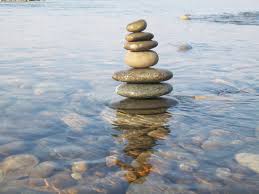
About midway through my time in Myanmar, I was on a bus sitting next to my teacher, Sayadaw U Tejaniya. In the background was the cacophony of talking voices, traffic horns and music blaring from cheap speakers. It was very different from my quiet monastery. While I tried my best to stay aware, I was easily pulled from my meditative state.
I turned and asked him, “Sayadaw, do you find all this noise and activity distracting?”
“Not distracting,” he said in his broken yet clear English, before adding, “awareness is always there.”
Around that time, I was very closely observing him. I knew his teachings, but how did that translate into how he lived? How was he while conducting a group interview? While eating? While casually talking? While on a bus?
After about a year of these observations, I came to believe he was actually aware nearly all the time, even while doing more complicated activities.
In other words, he was a meditation master.
There are generally two paradigms associated with mastery: flow and deliberate practice.
My teacher showed his mastery through flow. No matter what he did, there was very little striving, tension or seriousness. It was especially true in the simple things, like when he walked down a pathway, sat in a chair or ate food.
Fittingly, this flow paradigm is often associated with spiritual practice: just let go, accept yourself, be as you are. It’s also idealized by athletes, artists, musicians, nature enthusiasts and adventure seekers. It’s when the sense of time disappears and there is only this moment. Every act is intuitive, like a river navigating around a stream. It’s an absolutely invigorating and aliveness-affirming state to be in. However, remember my favorite quote of all time:
“You are perfect just as you are. And you could use a little improvement.” ~ Shunryu Suzuki
It’s often said that you need to put in 10,000 hours of work at something in order to become a master. What’s not so often said is that those aren’t 10,000 hours of pure flow. They’re filled with deliberate practice; aka a conscious effort to improve with specific targets for growth.
For example, in my meditation training in Myanmar, I didn’t just sit and do the same thing every time.
There were periods I looked exclusively at the thought-stream, trying to study my weaknesses so as to turn them into my strengths. There were periods I totally let go and learned relaxation and the effortlessness of pure awareness. I explored a variety of meditation techniques, and continually monitored my attitude of mind.
In other words, I ‘deliberately practiced’ different aspects of meditation until their lessons became intuitive and natural. Likewise, my teacher’s flow was only effective because he’d already logged 10s of thousands of hours of practice, much of it very deliberate.
Of course, it’s easy to love flow. It’s the juice that keeps athletes going. It’s the engagement that most artists find as an end to itself. Simply put, flow feels very good in and of itself.
Inversely, in Angela Duckworth’s excellent book, Grit, she reveals through various studies and interviews that many masters actually find deliberate practice difficult and unenjoyable.
So then why not always just flow?
There’s different layers to feeling good—one layer is the momentary sense of engagement, but there’s also a deeper fulfillment that comes from learning and growing.
If you put in hard work and you get results, it feels really freaking good; like spending an afternoon chopping firewood, then wiping the sweat from your forehead and relaxing into a couch as flames sparkle in your fireplace. Or finally finishing that book, or raising your child into an integrity-filled adult, or elevating your work to the point you see it really does help others.
Just like in that Shunryu Suzuzki quote, the dynamic interplay of life is all about finding the harmony of being proactive and relaxed, of action and stillness, of deliberate practice and flow.
A good starting point is to figure out where you stand:
Which activities (if any) do you regularly find flow? What specifically helps you have flow in those areas and not in others?
Which activities would you like some improvement? What would be your specific goals or aspirations?
Study yourself, then forget all about your studies and just be!
